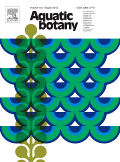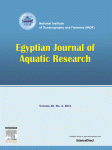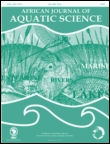
AQUATIC BOTANY
Scope & Guideline
Advancing knowledge of aquatic ecosystems.
Introduction
Aims and Scopes
- Ecological Dynamics of Aquatic Plants:
Research on the interactions between aquatic plants and their environments, including studies on nutrient dynamics, habitat preferences, and the impacts of environmental changes such as salinity and temperature. - Genetic and Phylogenetic Studies:
Investigations into the genetic diversity, population structure, and phylogenetic relationships of various aquatic plant species, aiding in understanding evolutionary processes and conservation strategies. - Invasive Species and Management:
Exploration of the ecology and management of invasive aquatic species, including their impacts on native flora, ecosystems, and potential management strategies. - Restoration Ecology:
Studies focused on the restoration of aquatic habitats, including the effectiveness of different restoration techniques and the ecological roles of various macrophytes in ecosystem recovery. - Aquatic Plant Physiology and Biochemistry:
Research on physiological processes in aquatic plants, including responses to environmental stressors, nutrient uptake, and the impact of pollutants on plant health. - Biodiversity and Conservation:
Documentation and assessment of aquatic plant biodiversity, with an emphasis on conservation strategies for threatened and endangered species.
Trending and Emerging
- Climate Change Impacts on Aquatic Ecosystems:
An increasing number of studies are focusing on how climate change affects the distribution, physiology, and ecological roles of aquatic plants, reflecting the urgency of understanding these impacts for future conservation efforts. - Molecular Techniques in Aquatic Botany:
The use of advanced molecular techniques, including DNA barcoding and genomic analyses, is becoming more prevalent, allowing for deeper insights into genetic diversity and evolutionary relationships among aquatic plants. - Ecological Roles of Macrophytes in Carbon Cycling:
Research exploring the role of aquatic plants in carbon cycling and their potential contributions to mitigating climate change is emerging, as scientists investigate their capacity to sequester carbon. - Effects of Nutrient Pollution:
There is a growing focus on the effects of nutrient pollution on aquatic plant health and community dynamics, addressing issues related to eutrophication and its consequences for aquatic ecosystems. - Human-Plant Interactions in Aquatic Systems:
Studies examining the interactions between human activities and aquatic plants, including the impact of urbanization and agriculture on aquatic plant communities, are increasingly emerging.
Declining or Waning
- Taxonomic Studies on Rare Species:
Research dedicated to the taxonomy of less common aquatic plants has become less frequent, possibly due to the increasing focus on ecological and genetic studies that provide broader implications for conservation. - Historical Ecological Studies:
The emphasis on historical ecological studies, which examine long-term changes in aquatic plant communities, has diminished as researchers pivot towards more immediate ecological impacts and restoration efforts. - Traditional Aquaculture Practices:
There has been a noticeable decline in studies focusing on traditional aquaculture practices involving aquatic plants, as interest shifts towards sustainable and innovative aquaculture techniques.
Similar Journals

NAUTILUS
Illuminating the Complexities of Aquatic LifeNAUTILUS is a distinguished journal published by the Bailey-Matthews Shell Museum, dedicated to advancing the understanding of aquatic sciences as well as ecology, evolution, behavior, and systematics. With an ISSN of 0028-1344, NAUTILUS has played a significant role in the scholarly community from its inception, with publication converged between 1996 to 2015 and 2017 to 2024. Although currently categorized as Q4 in Aquatic Science and Ecology, Evolution, Behavior and Systematics for 2023, the journal has a reputation for publishing high-quality research that contributes to the broader scientific discourse. Researchers and students alike can benefit from the insights provided by NAUTILUS, which remains committed to exploring the intricate relationships within aquatic ecosystems. Its editorial management, led by Dr. José H. Leal, ensures rigorous peer review and academic excellence, making it a crucial resource for those dedicated to discovering the complexities of aquatic and ecological research.

ACTA ZOOLOGICA BULGARICA
Fostering Knowledge in the Heart of Animal SciencesACTA ZOOLOGICA BULGARICA is a prominent academic journal dedicated to advancing knowledge in the fields of Animal Science, Zoology, Aquatic Science, Ecology, Evolution, Behavior, and Systematics. Published by the Institute of Zoology, Bulgarian Academy of Sciences, this journal serves as an invaluable platform for researchers, professionals, and students to disseminate their findings and engage with contemporary issues in biodiversity and ecology. With an established history since its convergence in 2010 and an ongoing publication schedule through to 2024, the journal holds a Q4 category ranking in multiple disciplines, highlighting its role in fostering scholarly communication in these areas despite its recent entry into Scopus-indexed rankings. Although currently not an open-access journal, ACTA ZOOLOGICA BULGARICA remains a key resource for those interested in the latest research and developments, particularly within the ecological and zoological landscapes of Europe and beyond.

CRUSTACEANA
Illuminating Crustacean Ecology and EvolutionCRUSTACEANA, published by BRILL, stands as a pivotal resource in the field of Animal Science and Zoology as well as Aquatic Science, with a focus on advancing the understanding of crustacean biology, ecology, and evolution. With an ISSN of 0011-216X and an E-ISSN of 1568-5403, this journal has been curating significant research since its inception in 1960 and continues to contribute scholarly knowledge up to 2024. Although it operates without an Open Access option, CRUSTACEANA holds a commendable Q3 ranking in both the Animal Science and Aquatic Science categories for 2023. Furthermore, it consistently provides insightful articles that enrich the academic dialogue surrounding aquatic ecosystems, making it a valuable platform for researchers, professionals, and students alike.

Egyptian Journal of Aquatic Research
Connecting researchers to elevate aquatic understanding.Welcome to the Egyptian Journal of Aquatic Research, a premier peer-reviewed academic journal published by ELSEVIER, dedicated to advancing the field of aquatic sciences. With a robust impact factor and recognition as a Q1 journal in key categories such as Aquatic Science and Ecology, this open access journal has established itself as a vital platform for disseminating high-quality research since its inception in 2012. The journal aims to provide comprehensive coverage of topics including ecology, evolutionary biology, and water science, making it a crucial resource for researchers, professionals, and students engaged in these dynamic fields. With Scopus rankings placing it in the top echelons of various categories, the Egyptian Journal of Aquatic Research fosters innovation, collaboration, and knowledge dissemination on a global scale, making it an indispensable asset for anyone invested in understanding and preserving aquatic systems.

Latin American Journal of Aquatic Research
Unveiling the Wonders of Oceanography and Aquatic ScienceLatin American Journal of Aquatic Research (ISSN: 0718-560X) is a distinguished scholarly publication that has been paving the way for aquatic science research since its transition to Open Access in 2008, allowing unhindered access to diverse scientific inquiries conducted in Latin America and beyond. Published by Pontificia Universidad Catolica de Valparaiso in Chile, this journal serves as a vital platform for researchers and practitioners in the fields of Aquatic Science and Oceanography. With an esteemed Q3 ranking in both categories as of 2023, it is dedicated to disseminating high-quality research findings that address pressing ecological and biological challenges. The journal’s reach and impact are reflected in its Scopus rankings, where it stands at the 36th percentile in Oceanography and the 35th percentile in Aquatic Science. Researchers, professionals, and students alike will find valuable insights and data-driven articles that further the understanding of aquatic ecosystems, making it an essential resource for ongoing studies and future innovations.

Aquatic Biology
Advancing Knowledge in Aquatic EcosystemsAquatic Biology, published by INTER-RESEARCH, is a leading open-access journal dedicated to the scientific exploration of aquatic ecosystems, promoting innovative research in the fields of aquatic science, ecology, and oceanography since its inception in 2007. With an E-ISSN of 1864-7782, the journal publishes original articles, reviews, and data papers that contribute to the understanding of aquatic biology in its myriad forms. As of 2023, it holds a respectable Q3 ranking across multiple categories including Aquatic Science and Ecology, reflecting its sustained impact within the scientific community. Situated in Germany, Aquatic Biology operates a policy of open access since 2014, ensuring that valuable research findings are readily available to researchers, professionals, and students worldwide, thus fostering collaboration and knowledge dissemination. By addressing diverse aquatic topics, the journal plays a crucial role in advancing the study and conservation of marine and freshwater environments, making it an essential resource for anyone seeking to deepen their understanding of aquatic systems.

Inland Water Biology
Connecting Research with Freshwater ConservationInland Water Biology is a distinguished peer-reviewed journal published by MAIK NAUKA/INTERPERIODICA/SPRINGER, focusing on the intricate interactions within freshwater ecosystems. With its ISSN (1995-0829) and E-ISSN (1995-0837), this journal has established itself as an essential resource for researchers and professionals in the fields of Aquatic Science and Ecology, evidenced by its consistent ranking in the Q3 category for both disciplines in 2023. Covering a wide array of topics related to the biology of inland waters, the journal aims to disseminate cutting-edge research findings and theoretical advancements that contribute to the understanding of aquatic environments and their ecological significance. Although it does not offer open access, its impact in the academic community is noteworthy, ensuring that published works undergo rigorous peer review. Researchers, professionals, and students alike will find valuable insights and innovative approaches within its pages, making Inland Water Biology a vital addition to their academic endeavors.

AFRICAN JOURNAL OF AQUATIC SCIENCE
Navigating the complexities of aquatic ecosystems together.AFRICAN JOURNAL OF AQUATIC SCIENCE, published by TAYLOR & FRANCIS LTD, is a premier scholarly journal dedicated to the field of aquatic science, ecology, and environmental management, playing a crucial role in advancing research and knowledge in these vital areas. With an impressive Q2 ranking in both Aquatic Science and Ecology, Evolution, Behavior and Systematics, the journal seeks to publish high-quality research encompassing a wide range of topics related to freshwater and marine ecosystems, including biodiversity, conservation strategies, and the impacts of climate change. Featuring a rich history of publication from 2000 to 2024, the journal not only embraces rigorous peer review but also aims to foster collaboration and dialogue among researchers, practitioners, and students interested in aquatic environments. Readers will find that the journal’s commitment to impactful scientific communication is reflected in its notable rankings within the Scopus database, making it an essential resource for those engaged in aquatic research and management.

CANADIAN JOURNAL OF FISHERIES AND AQUATIC SCIENCES
Unveiling the mysteries of aquatic ecosystems.The Canadian Journal of Fisheries and Aquatic Sciences, published by Canadian Science Publishing, stands as a premier interdisciplinary journal dedicated to advancing knowledge in the fields of aquatic sciences, ecology, and evolutionary biology. With a longstanding history of publication since 1980, this journal delivers high-quality, peer-reviewed research that contributes to the understanding of aquatic ecosystems and the sustainable management of fisheries. The journal is esteemed for its rigorous standards and currently holds a Q1 ranking in both Aquatic Science and Ecology, Evolution, Behavior, and Systematics as of 2023, evidencing its significant impact in these critical areas. Researchers, professionals, and students alike can expect compelling explorations of both fundamental and applied aspects of aquatic sciences. While the journal offers traditional access, it remains committed to disseminating pivotal research findings to foster a vibrant community of scholars and practitioners striving towards innovative solutions for aquatic environmental challenges.

BIOLOGY BULLETIN
Connecting Scholars to the Heart of Biological Discoveries.BIOLOGY BULLETIN is a prominent academic journal published by PLEIADES PUBLISHING INC, dedicated to advancing the fields of Agricultural and Biological Sciences as well as Biochemistry, Genetics, and Molecular Biology. With an ISSN of 1062-3590 and E-ISSN of 1608-3059, the journal has been a vital resource for researchers and professionals since its commencement in 1996. Located in the United States, BIOLOGY BULLETIN operates within a highly competitive academic landscape, achieving a 2023 ranking in the Q3 quartile for Agricultural and Biological Sciences and Q4 for Biochemistry, Genetics, and Molecular Biology, highlighting its commitment to delivering impactful research despite its challenges. Researchers seeking to publish their findings will find a platform for significant insights, as reflected in its Scopus rankings, where it stands at #183 and #199 out of 221 in its respective categories, showcasing opportunities for growth and visibility. While currently not an open-access publication, BIOLOGY BULLETIN plays a crucial role in facilitating scholarly communication and fostering an understanding of biological sciences, making it an essential read for academics, professionals, and students alike.